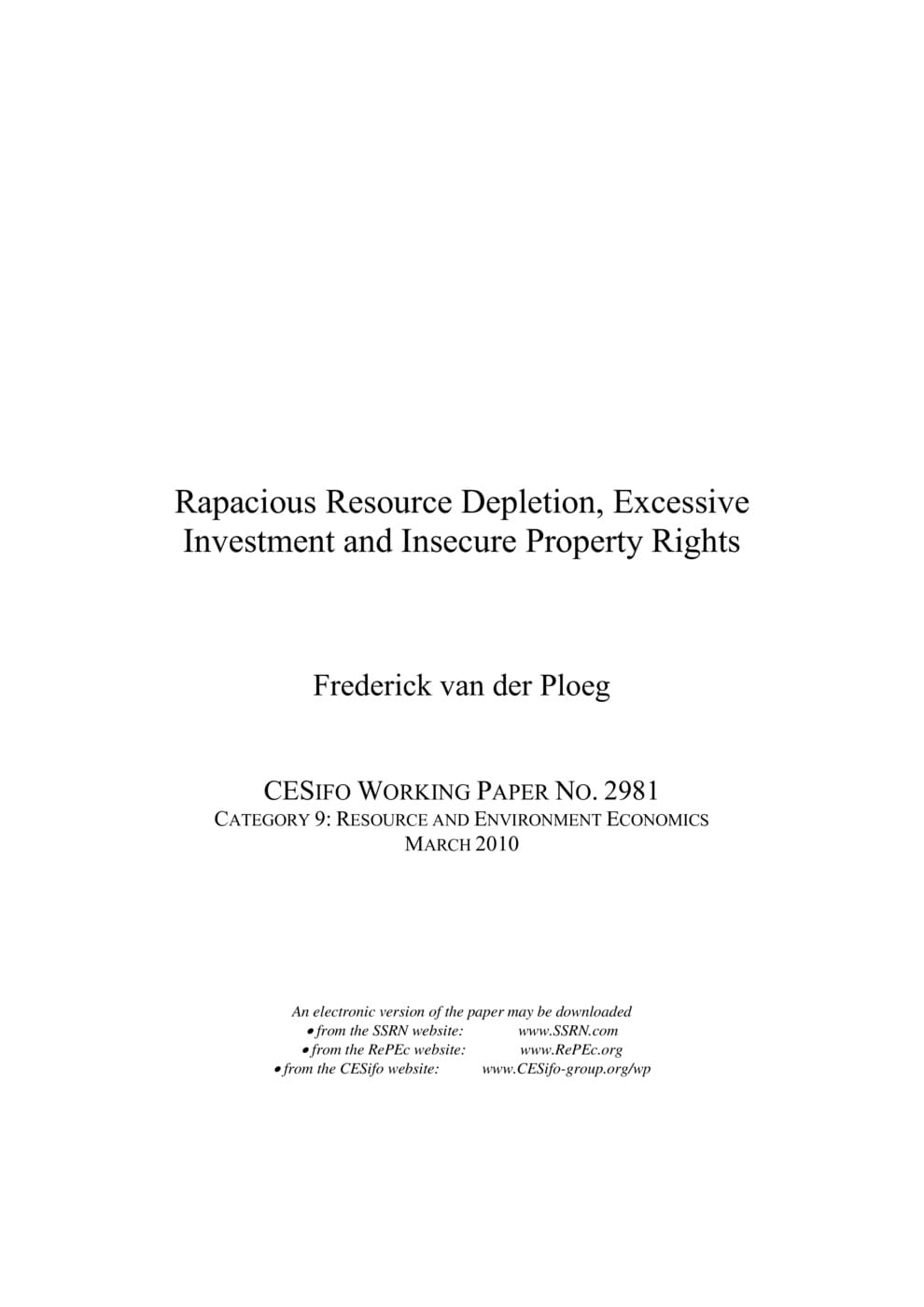Rapacious Resource Depletion, Excessive Investment and Insecure Property Rights
CESifo, Munich, 2010
CESifo Working Paper No. 2981

For a country fractionalized in competing factions, each owning part of the stock of natural exhaustible resources, or with insecure property rights, we analyze how resources are transformed into productive capital to sustain consumption. We allow property rights to improve as the country transforms natural resources into capital. The ensuing power struggle about the control of resources is solved as a non-cooperative differential game. Prices of resources and depletion increase faster than suggested by the Hotelling rule, especially with many competing factions and less secure property rights. As a result, the country substitutes away from resources to capital too rapidly and invests more than predicted by the Hartwick rule. The power struggle boosts output but depresses aggregate consumption and welfare, especially in highly fractionalized countries with less secure property rights. The theory suggests that adjusted net saving estimates calculated by the World Bank using market prices over-estimate welfare-based measures of genuine saving.
Resources and Environment